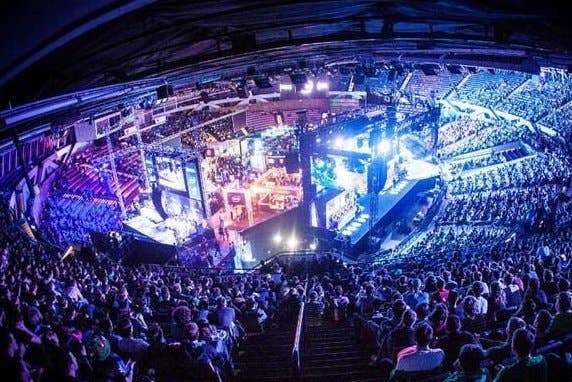ESL cracks down on drug use in eSports
Random skin tests to be carried out at Counter-Strike:GO tournament next month
The Electronic Sports League will administer random skin tests at the ESL One tournament in Cologne next month, part of a larger move to crack down on the use of performance enhancing drugs (PEDs) in eSports.
The ESL is also working with two specialist agencies to develop and enforce anti-PED policies. The Nationale Anti Doping Agentur (NADA) is located in Bonn, in the ESL's native Germany, while the World Anti Doping Agency (WADA) will help to adapt the new policies for international territories from its headquarters in Montreal, Canada.
The process will also be used to create a PED prevention program, which will be distributed to all participants in the ESL's numerous events. In a statement issued to the press, the company stated: "The goal of this program is to ensure players are provided with information and structural support to help them manage the physical and emotional pressure that the highest level of competitive gaming puts on many of them."
Random skin tests are the most direct manifestation of this tougher stance on the use of PEDs in eSports, and the ESL will introduce them to all events in the Intel Extreme Masters, ESL One and ESL ESEA Pro League competitions.
"We wish to take immediate action to ensure the company values of exemplary sportsmanship and integrity are guarded"
Electronic Sports League
"Players participating in individual competitions under the ESL brand will be reached through their respective team managers and/or owners with updates on changes in the tournament rules. This will include the list of banned substances, the methods of testing, and the disciplinary actions for players caught using PEDs and/or admitting to having used them."
The notion that PEDs could become an issue in eSports has been discussed for several years already. Speaking to GamesIndustry.biz in March 2013, Riot Games' Brandon Beck admitted that the realtive infancy of eSports meant that a defined policy on the use of PEDs had yet to take shape.
"We haven't had any cases that have had that, but we're keeping our eyes and ears open in the event we do need to take action, because we'd hate to put these guys' health in jeopardy," he said. "We haven't had any incidents yet."
However, rules and protections like those being developed by the ESL may already be overdue. Indeed, the ESL's actions are almost certainly related to the apparently widespread use of Adderrall in the Counter-Strike:GO eSports community. In an interview spotted by Gamasutra, CS:GO player Kory "Semphis" Friesen claimed that he and the other members of his team, Cloud 9, were, "all on Adderrall," during an eSports tournament organised by the ESL.
"It was pretty obvious if you listen to the comms," Friesen said. The interviewer, another eSports player, added, "everyone does Adderall at ESEA LAN, right? Just throwing that out there for the fans. That's how you get good."
And as the money at stake continues to rise, the temptation to use PEDs is likely to increase. The winning team at the official Dota 2 world championship last year shared a $5 million prize, half of the $10 million pool. This year, that amount will be even higher, with the total prize-pool currently standing at more than $17 million.


